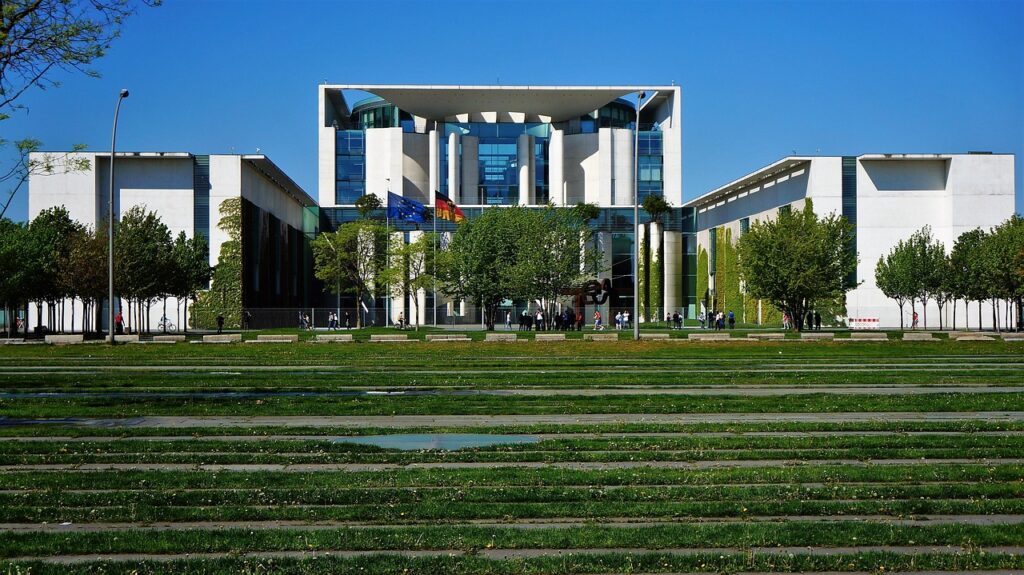Vice Chancellor Vacancies in the Spotlight
Vice Chancellor Vacancies Nagpur University is facing a significant leadership gap as the appointment of its new vice chancellor has been delayed once again. The process has been slowed largely due to the state governor’s involvement in the NDA vice-presidential election, leaving administrative priorities temporarily sidelined. This delay has heightened uncertainty within the university, where decisions on academic reforms and institutional development hinge on strong, stable leadership in vice-chancellor vacancies.
The Vice Chancellor Vacancies search committee has already shortlisted nearly 70 candidates, drawing from a pool of respected international academicians as well as senior Indian faculty members. The broad range of applicants reflects both the prestige of the post and the urgency with which stakeholders hope to see the vacancy filled. However, with the final selection process now pushed further, it is unlikely a new Vice Chancellor Vacancies will be in place before Diwali 2025. Until theunin, Nagpur University continues to operate in a holding pattern, awaiting fresh direction.
Utkal University: High Court Flags Prolonged Vacancy
Since the Vice-Chancellor Vacancies post initially became open in November 2024, Utkal University has struggled with a leadership void. The prolonged delay has prompted intervention from the Orissa High Court, which recently raised concerns over the legality of the interim Vice Chancellor Vacancies appointment. The court’s observations have drawn attention to the potential risks of allowing universities to operate under temporary leadership for extended periods, particularly when major administrative and academic decisions must be made.
Despite the legal uncertainty, state authorities have attempted to reassure faculty, students, and the broader academic community that the permanent selection process is in its final stages. Officials have indicated that candidates are already under consideration and that an appointment will be announced soon. Until then, however, Utkal University remains in a delicate position—caught between the necessity of day-to-day functioning and the need for stable, long-term leadership to guide its future.

Appointment Processes & Opportunities
Odisha: Applications Invited for 13 Vice-Chancellor Posts
In mid-2025, the Odisha government announced a major recruitment drive to address leadership gaps across its higher education system by inviting applications for 13 vice-chancellor vacancy positions in public universities. This large-scale call for candidates reflects the widespread vacancies affecting institutions throughout the state, many of which have been operating under interim leadership for months.
Applicants are required to meet strict eligibility criteria, including significant academic credentials and proven administrative experience, ensuring that only seasoned scholars and leaders are considered. The government’s move has been welcomed by academics, who see it as an opportunity to revitalize universities that have struggled with stalled projects, faculty shortages, and declining morale.
With the selection process underway, expectations are high that permanent appointments will bring much-needed stability and direction. However, stakeholders remain cautious, noting that timely execution is critical to prevent further disruptions in Odisha’s higher education landscape.
Punjab, Pakistan: Vice Chancellor Vacancies Announced
In April 2025, the Higher Education Department of Punjab issued a vacancy announcement for the appointment of Vice Chancellor Vacancies at three of the province’s public sector universities: the University of Mianwali, Kohsar University Murree, and Baba Guru Nanak University Nankana Sahib. The call for applications was part of a broader effort to strengthen governance and academic leadership across the region’s higher education institutions.
The announcement emphasized the need for candidates with strong academic records and extensive administrative experience, reflecting the government’s intention to attract leaders capable of managing both institutional growth and the challenges facing public universities. These include funding constraints, faculty shortages, and the demand for modernized curricula.
The vacancies also highlight a pressing concern within Pakistan’s higher education sector—frequent delays in permanent appointments, which often leave universities under interim leadership for prolonged periods, stalling reforms and long-term planning.
Uttarakhand Technical University: VC Post Opened
In March 2025, Veer Madho Singh Bhandari Uttarakhand Technical University announced a vacancy for its Vice Chancellor Vacancies position, underscoring the state’s focus on strengthening leadership within higher education. The notification outlined strict eligibility requirements, calling for candidates with distinguished academic qualifications, proven research credentials, and extensive administrative experience. By setting such high standards, the university aimed to ensure that its next leader would not only be a scholar but also an effective administrator capable of driving growth and innovation.
The position’s importance is tied to the university’s mandate of advancing technical and professional education in Uttarakhand. With ongoing challenges such as updating curricula, expanding industry partnerships, and addressing resource constraints, the role of the Vice-Chancellor Vacancies is pivotal. The vacancy thus represents both a leadership challenge and an opportunity to bring transformative vision to one of the state’s most important technical institutions.

Disruptions & Institutional Challenges
Rama Devi Women’s University in Odisha has been struggling with a leadership vacuum since December 2024, when its Vice-Chancellor Vacancies post became vacant. The absence of a permanent head has had serious consequences for the institution’s growth and governance. With no long-term leadership in place, expansion plans have slowed to a halt, leaving the university unable to move forward with critical initiatives.
One of the most pressing issues is the shortage of faculty. Current estimates suggest that 57% of teaching posts remain vacant, forcing departments to manage with limited staff and affecting the overall quality of instruction. In addition, major development projects, including the establishment of new academic departments and the construction of satellite campuses, remain stalled.
The prolonged vacancy underscores how essential the vice-chancellor’s role is in steering strategic decisions. Without decisive leadership, the university risks losing momentum in its mission to expand opportunities for women’s higher education.
Khyber Pakhtunkhwa: Universities Disrupted by VC Vacancies
In Khyber Pakhtunkhwa, Pakistan, the prolonged absence of regular vice chancellors and pro-VCs has created severe administrative bottlenecks across multiple public universities. With leadership positions vacant, many institutions are struggling to carry out essential functions, including budget planning, faculty recruitment, and degree issuance. The reliance on acting Vice Chancellor Vacancies has proven inadequate, as interim appointees often lack the legal authority to sign critical documents or make binding decisions.
This leadership void has disrupted not only the day-to-day operations of universities but also long-term academic and infrastructural planning. Students, in particular, face delays in receiving official degrees and certifications, which directly impacts their career prospects and opportunities for further study. Faculty members, meanwhile, are left in limbo regarding promotions, funding approvals, and research projects.
The crisis highlights the urgent need for timely appointments of permanent vice chancellors to restore stability, credibility, and proper governance within the higher education sector in the province.
Why This Matters: The Bigger Picture
Vacancies in Vice Chancellor Vacancies positions are more than temporary inconveniences—they create serious governance challenges that ripple through entire university systems. Without permanent leadership, strategic decision-making stalls, leaving institutions unable to pursue long-term development plans or implement reforms. This lack of direction can weaken academic quality, delay infrastructure projects, and slow faculty recruitment, all of which directly affect students’ educational experience in Vice-Chancellor Vacancies
The situation is especially concerning in regions like Pakistan, where acting vice chancellors often lack the credibility and authority to make binding decisions. As a result, critical processes such as approving budgets, issuing degrees, or securing research funding are left in limbo. This leads to widespread administrative stagnation and mounting frustration among students, faculty, and staff.
Ultimately, a prolonged leadership vacuum undermines not just the functioning of individual universities but also the broader goal of building strong, competitive higher education systems capable of meeting global standards.
Conclusion
The recurring vacancies in Vice Chancellor Vacancies positions across universities in India and Pakistan reveal a systemic challenge in higher education governance. From Nagpur and Utkal University to institutions in Odisha and Khyber Pakhtunkhwa, the absence of permanent leadership has led to delayed projects, stalled budgets, faculty shortages, and weakened academic quality. Acting heads, though essential for continuity, lack the authority and long-term vision needed to guide institutions through complex challenges.
At the same time, large-scale recruitment drives—such as Odisha’s call for 13 VCs and Punjab’s announcement for multiple posts—show that governments recognize the urgency of addressing these gaps. Yet, until appointments are made swiftly and transparently, universities remain vulnerable to stagnation.
Strong, visionary leadership at the vice-chancellor vacancies level is critical not only for institutional growth but also for ensuring that higher education fulfills its role in driving innovation, opportunity, and societal progress across the region.
FAQs
1. What does a Vice Chancellor do?
A Vice Chancellor is the chief executive officer of a university or higher education institution. They oversee academic and administrative functions, implement policies, manage finances, and provide leadership to staff, faculty, and students.
2. Why do Vice Chancellor vacancies occur?
Vice Chancellor Vacancies can arise due to retirement, resignation, end of term, internal promotions, or disciplinary actions. Occasionally, universities may also expand their leadership teams, creating additional positions.
3. How are Vice Chancellor Vacancies?
The appointment process varies by country and institution but typically involves a search committee, interviews, and approval from a governing body, such as the university council or board of trustees.
4. Who is eligible to apply for a Vice Chancellor Vacancies?
Eligibility usually includes extensive experience in academia, strong leadership skills, research achievements, and prior administrative experience, such as serving as a dean, department head, or provost.
5. How long does a Vice Chancellor serve?
Terms vary by institution, but most Vice-Chancellors serve for 3 to 5 years, with the possibility of renewal depending on performance and institutional policies.
6. What is the role of a search committee in filling Vice Chancellor vacancies?
A search committee identifies suitable candidates, reviews applications, conducts interviews, and recommends finalists to the governing body responsible for the final appointment.
7. Can external candidates apply for Vice Chancellor Vacancies?
Yes. Many universities consider both internal and external candidates to bring fresh perspectives and diverse leadership experience to the institution.
8. What are the key qualities universities look for in a Vice-Chancellor?
Leadership, vision, strategic planning skills, financial management, communication, academic credibility, and the ability to foster collaboration among faculty, staff, and students are highly valued.


